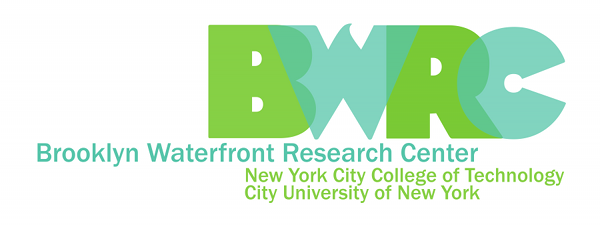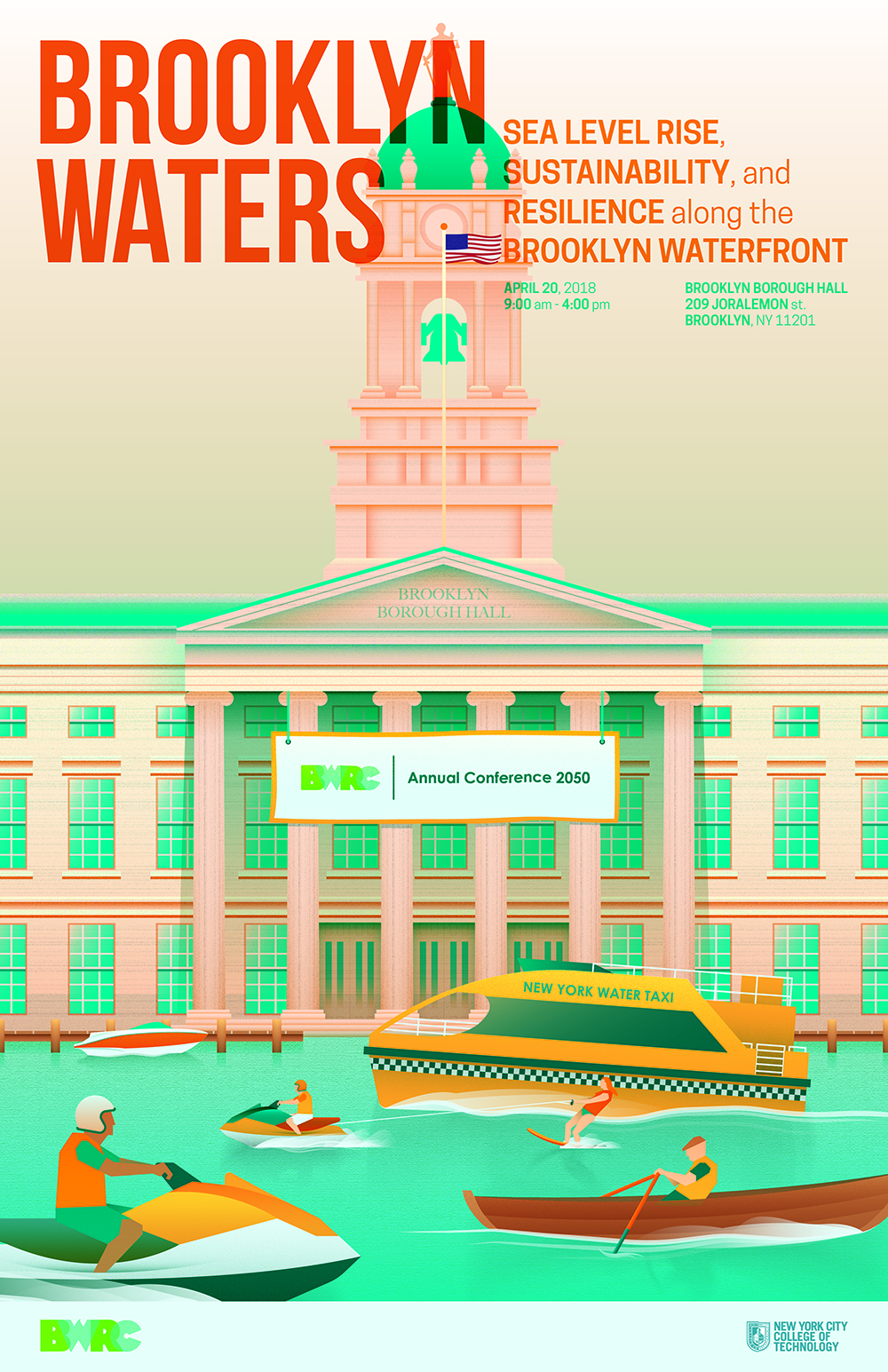The Brooklyn Waterfront Research Center (BWRC) presents Brooklyn Waters, a full-day conference on sea level rise, sustainability, and resiliency along the Brooklyn waterfront. Brooklyn Waters will examine how preparation for storm surge and rising tides has already remade – and is set to radically remake – the coastal areas of Kings County.
While the Brooklyn waterfront holds much in common with other coastal regions—and with those of its sister boroughs— the challenges it faces are unique. The past two decades have ushered in a dramatic transformation of the Brooklyn waterfront district’s built environment. Now, we are faced with yet another dramatic waterfront transformation in the coming two decades, one the will be driven by the unwieldy forces of ecological systems.
The conference opens with a provocative primer on sea level rise, subsidence, and storm surges. A panel will discuss how these issues have already catalyzed change along the water—in the waterfront’s infrastructure, its transportation systems, its low-lying communities, and its public housing. The core of the conference, however, will center on the question: What is the future of Brooklyn’s built and natural waterfront?
Brooklyn Waters will offer a diverse set of perspectives on the topic of future interventions and approaches to rising tides. Various waterfront community leaders will share their grassroots planning efforts. City officials will speak about both the near and long-term promises of resiliency planning. Architects will debate the role and limits of design in creating resilient neighborhoods. Environmental experts will discuss efforts to protect Brooklyn’s natural and constructed shorelines, including Jamaica Bay and Brooklyn Bridge Park. The conference’s agenda will span the gamut from urban policy, engineering, community activism, to land use.
Please register here & reserve your seat today.
Brooklyn Waters Panels:
A Waterfront Transformed: Exploring Civic, Government and Design Responses to Sea-level rise & Storm Surge
The first panel will look at the issues created by climate change and sea-level rise from a variety of perspectives and places. This panel will explore about new guidelines for building in a sustainable manner along the waterfront; the way designers have integrated sustainable planning into two significant residential developments in North Brooklyn; what “resilience” means in the context of public housing in Red Hook; what changing flood maps and the resulting changes in flood insurance rates might mean to small homeowners in communities like Canarsie; steps that large industrial developments along the waterfront like the Brooklyn Navy Yard are taking to become resilient; and how environmental justice can be achieved in waterfront communities faced with these challenges
Built or Natural? Stewarding & Safeguarding Brooklyn’s Diverse Waterfront Communities
Panel two focuses on two jewels of the Brooklyn waterfront: one built and one natural. Panelists will explain how the first, Brooklyn Bridge Park, was designed for resilience and how the second, Jamaica Bay, is the object of study and efforts to keep it sustainable. Jamaica Bay is a collection of various endangered ecosystems—salt marshes, fresh ponds, beaches, and dunes—that are of intrinsic value in themselves as well as being important to the ecology of the region. We will hear from panelists representing organizations engaged in this work of study, preservation, and resilience.
Resiliency & Beyond: A Round-Table Discussion on the future of planning, governing and design within our climate-altered future
The last session of the day will feature a forward-facing discussion that will invite conference participants to jump into the discussion. Representatives from the Mayor’s Office of Recovery & Resilience will be joined by Council Member Carlos Menchaca as well as community leaders and architects. This forward-looking group of panelist will tackle the often side-stepped, more macro-questions: What are some near-term and far-term developments for which New York City citizens should be prepared? What emerging realities – managed retreat, widening flood plains, transformed housing demands – should be centered more in our public debate about climate change? What will the challenges posed by Brooklyn’s waterfront geography demand of both citizens and government alike?
Light refreshments and a full lunch will be served. For further questions and information, please contact ccastellan@gradcenter.cuny.edu .



